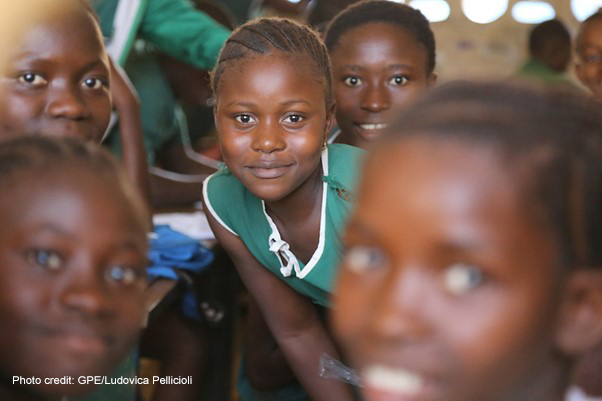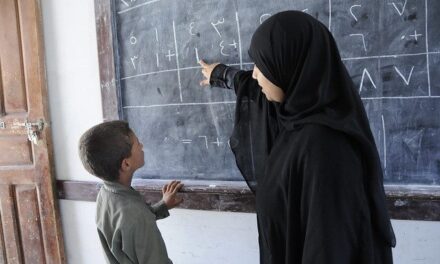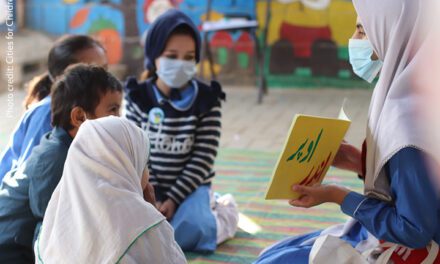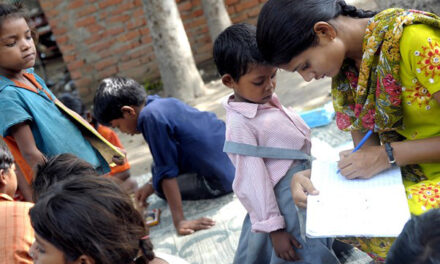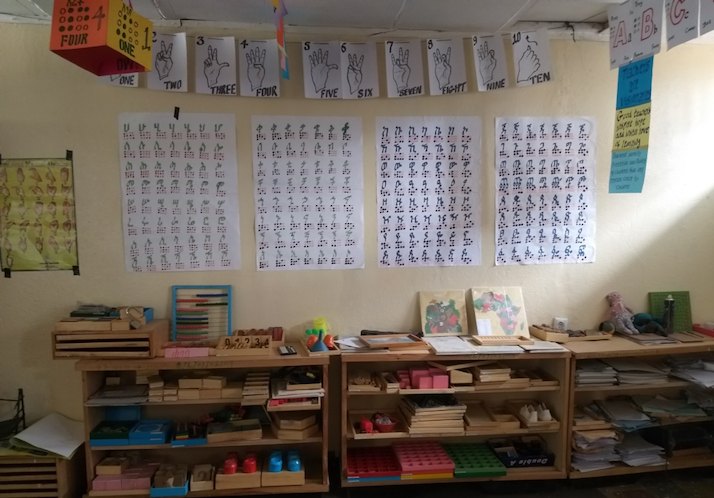This blog was written by Barbara Harvey and originally published on the FCDO Girls’ Education Challenge website on 25 February 2022.
“One of the objectives of the project is to inspire young people who have dropped out like us to continue our education and serve our community. Some of us want to continue our education, but we don’t have the support. That is why the project supported us to achieve our dreams. It was an opportunity I took seriously because there is an adage that I believe which says, ‘when you educate a woman you have educated a whole society’. That inspires me.”[i]
The Girls’ Access to Education – Girls’ Education Challenge (GATE-GEC) project was a four-year UK Aid-funded project. It was led by Plan International UK and implemented by Plan International Sierra Leone, alongside consortium partners Action Aid, Humanity and Inclusion and the Open University (OU). The project worked across six districts in Sierra Leone to support 11,012 marginalised girls (including 1,652 children with disabilities) to attend school, reach their full learning potential, learn in a safe and inclusive school environment, and successfully transition to further education and beyond. The GATE-GEC team developed a range of activities aimed at achieving learning, transition and sustainability outcomes, while addressing the barriers to education, such as harmful gender attitudes among educators, limited mentorship and support for teachers’ development and gender imbalance among staff, which is likely to significantly impact marginalised girls’ learning.
Plan International, OU and key national stakeholders, including the Teacher Services Commission and Teacher Training Colleges, developed an innovative model of distance learning and school-based placement training that responded to a complete lack of female educators in rural locations. They created a teacher training model which would be appropriate to the Sierra Leone context and would enable marginalised young women within rural communities to train and qualify as teachers, providing female role models for marginalised girls and a career pathway for young women.
Young women in project communities were selected by the project, in collaboration with community members and leaders, to be Learning Assistants in primary schools, and to study for three years to qualify as teachers. The distance training approach included a combination of:
- Work-based placement in primary schools. As Learning Assistants, the young women supported teachers and children, and gained practical experience in the teaching environment to help them get their teaching qualification.
- Twelve to 18 months of literacy and numeracy training materials provided to the Learning Assistants to enable them to sit the Teacher Training College entrance exam. After passing this, they became Student Teachers.
- Provision of study materials and tablet-based resources developed by OU (designed by OU and aligned with the Sierra Leone teacher training curriculum).
- Regular face-to-face mentoring by Tutors and Practice Study Mentors.
- Peer-to-peer support through regular tutorial meetings with fellow Student Teachers.
- Periodic residential training sessions.
The programme supported the Student Teachers to sit the National Council for Technical, Vocational and Other Academic Awards examinations to become a qualified teacher. A total of 704 young women (85% of project target) were supported and became Newly Qualified Female Teachers (NQFTs).
Unsurprisingly, the COVID-19 pandemic had an impact on the implementation of the GATE-GEC distance teacher training model, including delays in getting the NQFTs on the civil service payroll, the closure of Teacher Training Colleges and primary schools, halting of Student Teacher placements, and the postponement of residential training and Student Teacher exams. This had a temporary deleterious effect on the morale of the Student Teachers. In response, the project provided 227 of them with stipends and further materials to support study during the closure of Teacher Training Colleges, including radios and solar chargers to support tablet-based studies and connectivity, masks, gloves and sanitiser. They helped them attend residential activities in September 2020 when lockdown restrictions were ended. The final external evaluation found that there was renewed commitment from the Student Teachers to qualify as teachers.
Overall, the GATE-GEC project attributes the success of their teacher training model to several factors including the involvement of the community in selecting the young women to take part and collaboration with community leaders and community infrastructures to ensure buy-in and support for an initiative that challenged entrenched gendered social norms. Positive role modelling took place within the school context for girls, leading to a gender-transformative impact on social norms and attitudes within the whole community.
Qualitative findings of the final external evaluation indicated that this approach supported women in rural communities with a structured pathway into the teaching profession, provided positive role models for girls and targeted intersectional barriers to education. Exploring the experiences of NQFTs as both beneficiaries of the project, as well as stakeholders and actors, the final external evaluation also found that the project had a strong positive impact on the lives of NQFTs, and on their perceptions of how they can continue to influence and support the lives of marginalised children going forward.
“Now, I am a newly qualified female teacher. That will inspire another girl child. At first people said, “I don’t want to be a female teacher, I don’t want to stand in the classroom to teach”. As a female teacher, if you teach a girl child and explain to them they will feel to become a teacher, I think that will motivate the child [to] say, when I grow up, tomorrow, I want to be a female teacher.”[ii]
The GATE-GEC distance learning and school-based placement training approach has helped young women in Sierra Leone to become qualified teachers and act as role models for marginalised girls in project schools. It is promising that Plan International has sourced additional funds so that another cohort of women can train and complete their studies, providing further evidence to education authorities that this model can be scaled up and extended across the country.
[i] GATE-GEC Project Completion Report
[ii] GATE-GEC Project Completion Report

